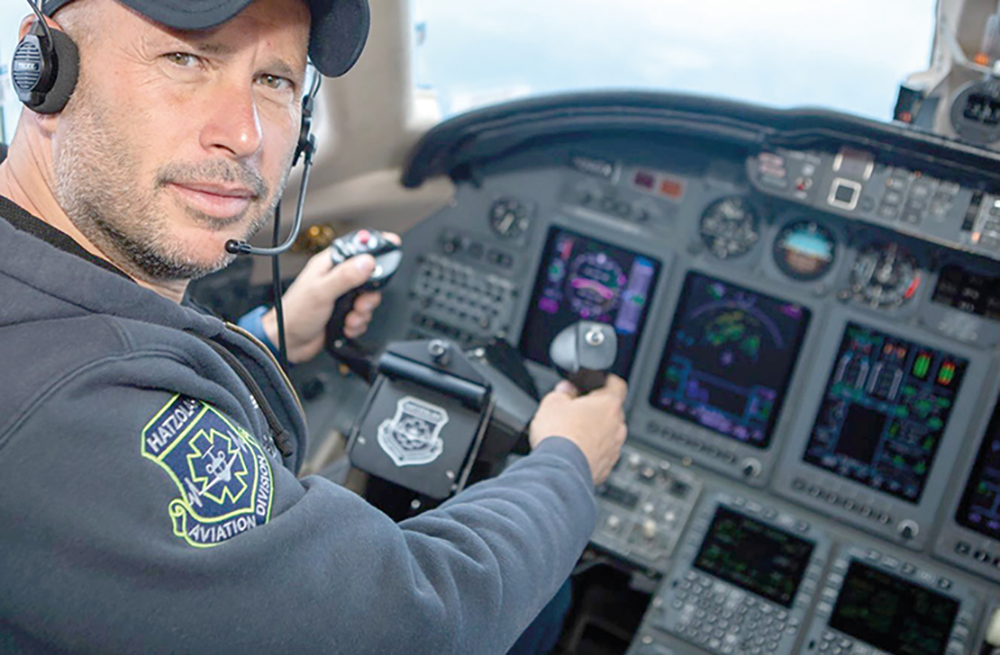|
Getting your Trinity Audio player ready...
|
By: Fern Sidman
In the realm of global medical services, where time often makes the difference between life and death, Hatzolah Air has emerged as a crucial player since its inception in 2019. This nonprofit organization, led by its founder and president Eli Rowe, provides essential air-based emergency medical transport, marking a powerful expansion of the well-known Hatzalah EMS network, which has been providing ground-based services for nearly 60 years. Eli Rowe and his team at Hatzolah Air have designed the organization to alleviate the greatest fear of many travelers—falling gravely ill or experiencing a medical emergency far from home. Hatzolah Air’s services ensure that, no matter the distance or geographical barriers, immediate and professional assistance is available, especially in life-threatening situations where every moment is critical.
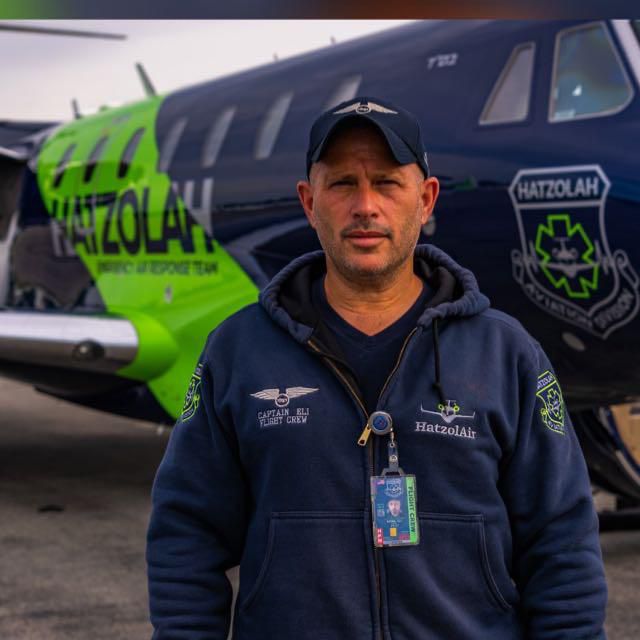
For Rowe, the inspiration for founding Hatzolah Air comes directly from the foundational story of Hatzalah EMS. In an interview with The Jewish Voice, Rowe recalled the origins of Hatzalah in Williamsburg, Brooklyn, in the mid-1960s. He spoke of how “one man who saw someone experiencing a medical emergency… took it upon himself to save his life.” That man, Rabbi Hershel Weber, sprang into action with an oxygen tank, recognizing that the city’s conventional emergency services would not arrive in time. As Rowe pointed out, “He knew that every moment counted, and on that day history was made, and Hatzolah was created.” Rabbi Weber’s initiative was not only an act of life-saving heroism but also a powerful statement about the role of community-led intervention, ultimately inspiring Rowe’s vision for Hatzolah Air.
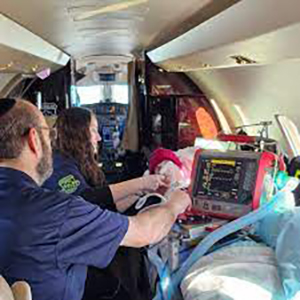
Rabbi Weber’s initiative demonstrated clear benefits, inspiring other Orthodox Jewish neighborhoods in New York City to adopt the model. By focusing on rapid response times and utilizing volunteer members familiar with the community, Hatzalah became a trusted, efficient, and lifesaving resource. This model not only allowed for quick mobilization but also provided culturally sensitive care by volunteers who understood the specific customs and sensitivities of their community.
As the benefits of Hatzalah’s approach became more apparent, its reach expanded beyond Williamsburg. Neighborhoods such as Borough Park, Crown Heights, and other Orthodox communities in Brooklyn and Queens soon established their own Hatzalah teams. Over the years, Hatzalah’s operations spread across the New York metropolitan area, serving not just Orthodox communities but also responding to emergencies in surrounding neighborhoods.
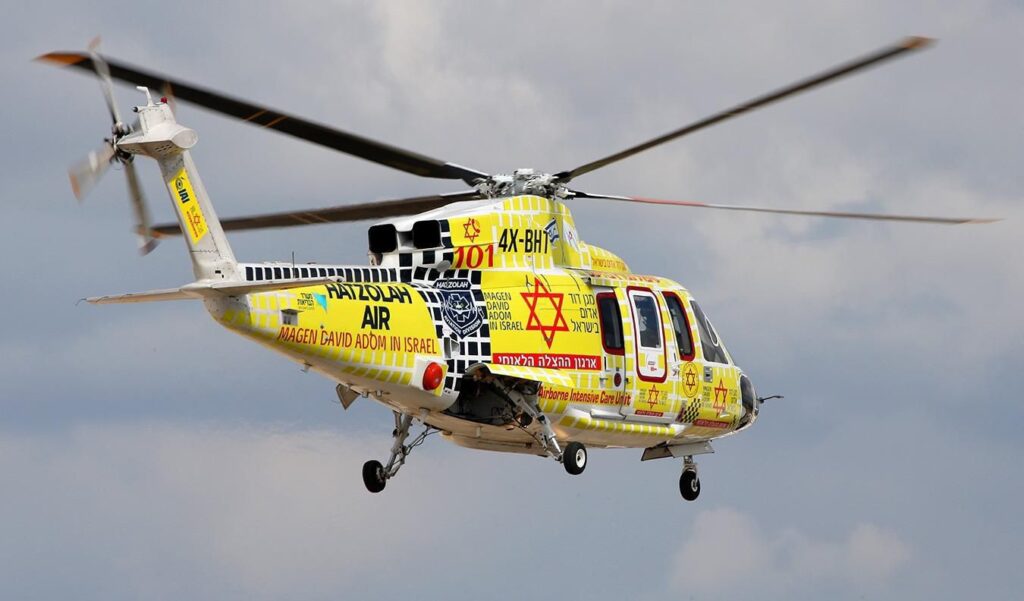
Hatzolah Air builds on Rabbi Weber’s legacy by going beyond the limitations of traditional ground EMS services, deploying fixed-wing aircraft that can circumvent delays posed by urban congestion or hard-to-reach locations. Rowe describes Hatzolah Air as a nonprofit organization that utilizes a specialized fleet capable of reaching “remote or inaccessible regions with life-saving speed.” Though Hatzolah Air was initially founded to serve the Jewish community, its reach has extended to anyone in urgent need of medical evacuation. Rowe’s mission for the organization aligns with the core values that guided Hatzalah EMS’s establishment decades earlier: to bridge gaps in emergency response and ensure that help arrives as quickly as possible.
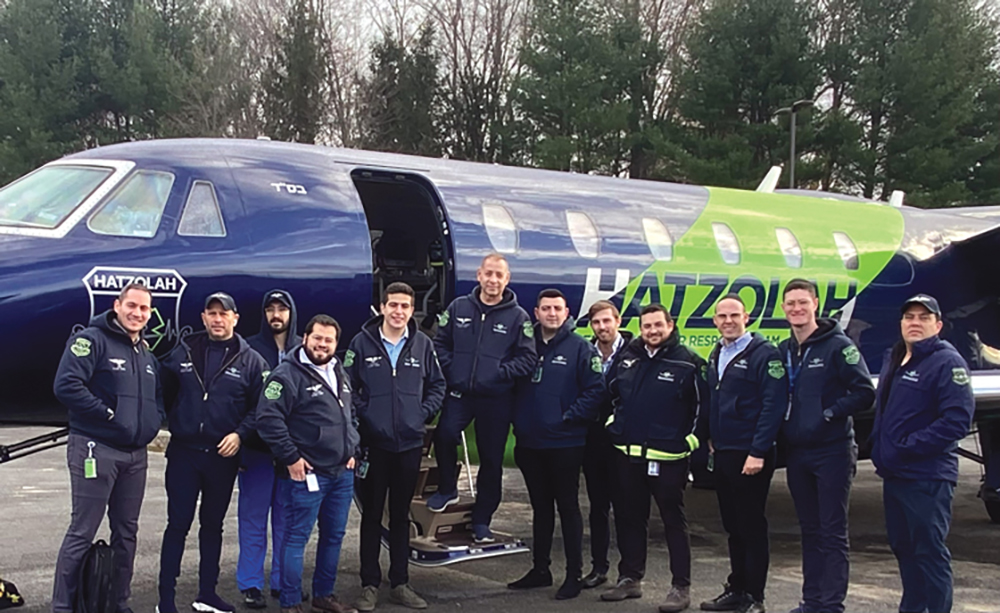
Rowe emphasized that the spirit behind Hatzolah’s early years—“going out of your comfort zone”—remains central to Hatzolah Air’s philosophy. The initial Hatzalah EMS team was modest, equipped with only “an oxygen tank and a first aid kit,” and focused on aiding such communities as Williamsburg, the Lower East Side, and Crown Heights. However, the impact of this community-driven approach was profound, sparking rapid growth across New York City’s Orthodox Jewish neighborhoods. By the 1970s, Hatzalah’s model had been replicated in various cities, expanding internationally. Today, there are over 100 independent Hatzalah organizations globally, with 21 based in Israel alone, all dedicated to the original mission of providing life-saving care in the crucial moments following an emergency.
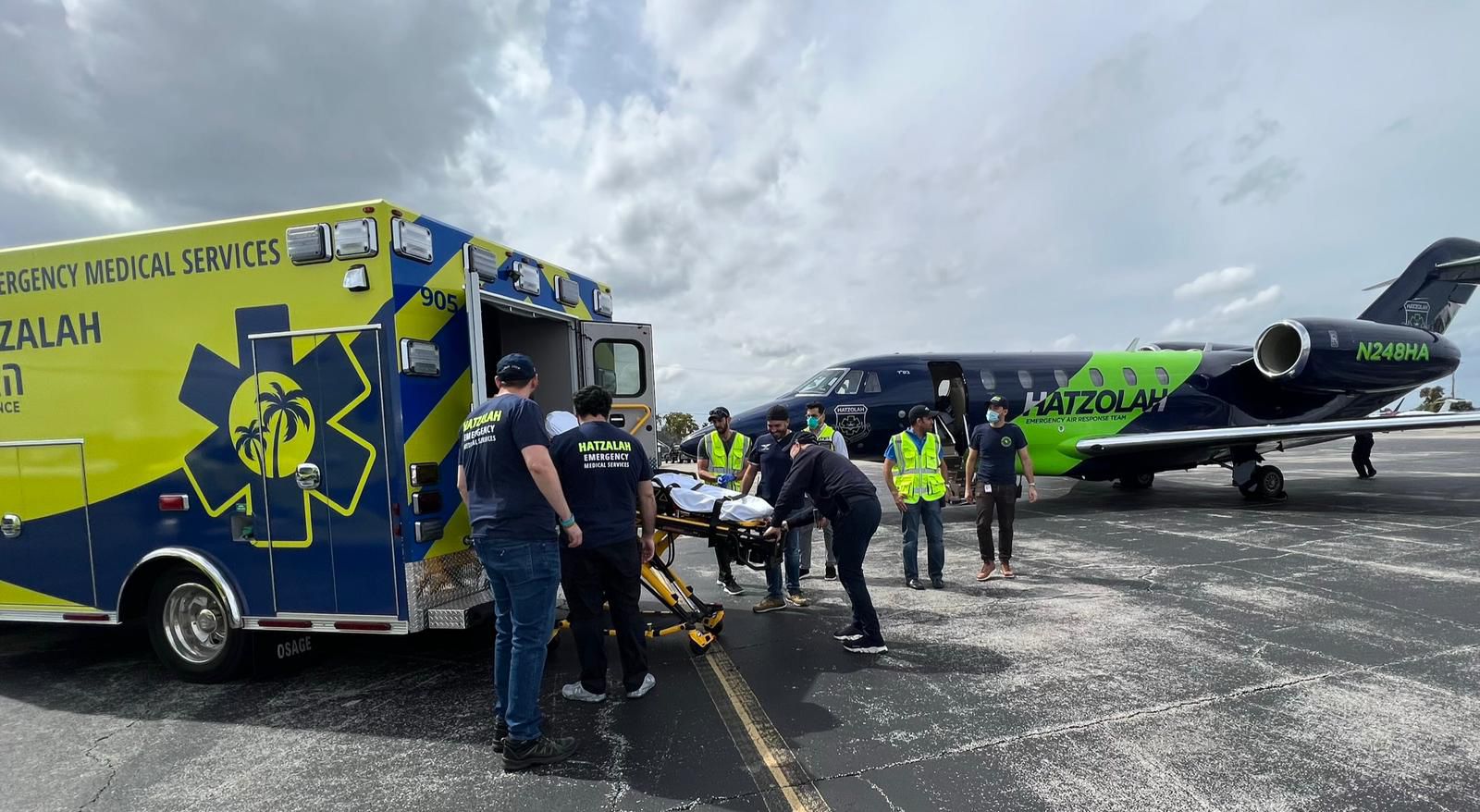
Hatzolah Air exemplifies a natural evolution of Hatzalah’s founding mission, taking the community’s proactive spirit into the skies to reach patients globally, particularly in critical situations that demand fast, professional intervention. Under Rowe’s leadership, Hatzolah Air continues to advance Rabbi Weber’s vision, proving that even small beginnings—like an oxygen tank in Brooklyn—can lead to life-saving transformations worldwide.
The organization, established in 2018 after years of planning and careful collaboration with medical professionals and volunteer pilots, embodies Rowe’s vision to extend the “brotherhood of people that are connected by a shared mission of saving lives.” Rowe himself has been a dedicated member of Hatzolah since 1987, and as a commercial pilot and nationally registered medic, he felt a deep responsibility to make a difference through emergency medical aviation.
Rowe drew profound inspiration from the legacy of Herschel Weber. Reflecting on this, Rowe remarked, “Taking the model of Herschel Weber, I knew that I was ‘that’ guy as well.” Motivated to serve the greater good, Rowe began flying occasional, ad-hoc rescue flights before officially establishing Hatzolah Air. His goal was to create an extension of Hatzolah that would embody Weber’s spirit, pushing boundaries to meet emergency medical needs in ways that conventional EMS services could not. By 2018, Rowe had invested significant time in collaboration with doctors, volunteer pilots, and logistics experts to prepare Hatzolah Air for its first official missions. During this formative period, Rowe admits, “Frankly, we didn’t know what we needed to make Hatzolah Air a success, but now we do.”
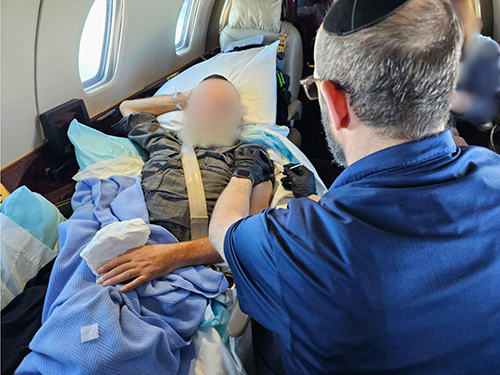
One of the pivotal moments in Hatzolah Air’s early operations was Rowe’s first major medical transport flight, which took a critically ill man on a ventilator from Los Angeles to New York. The experience was profoundly moving for Rowe, who realized the weight of his role within what he considers “one of the most impressive global tzedakah projects.” This mission, like many that would follow, underscored the immense emotional and physical demands of Hatzolah Air’s work, reinforcing Rowe’s commitment to bridging gaps in emergency medical response.
Launching Hatzolah Air required substantial resources beyond just planes and equipment. The organization began by relying heavily on donations and contributions from philanthropists who shared Rowe’s vision. With the help of a dedicated team composed of aviation professionals, medical specialists, and business leaders, Hatzolah Air was able to “literally get off the ground.” The organization’s aim was to provide urgent air transport as a critical supplement to the global network of regional Hatzolah organizations. By providing air-based medical evacuation and transport, Hatzolah Air significantly enhances the capabilities of Hatzolah’s ground operations, allowing it to reach remote or hard-to-access areas with life-saving speed and efficiency.
Rowe told The Jewish Voice that Hatzolah Air now operates a network of volunteer commercial pilots and specialized aircraft to respond swiftly to medical and humanitarian crises. Its base in Sullivan County, an airport with a substantial 26-acre lease acquired in 2022 on a 120-year term at a nominal rate of $18 per year. Here, Hatzolah Air has transformed a classic county hangar into a modern facility with offices, dispatch centers, storage, a kitchen, and two pilot snooze rooms complete with shower facilities. The facility exemplifies the organization’s self-sufficiency and commitment to its mission, having been constructed entirely with donated materials and the help of volunteer vendors.
The current setup is just the beginning of Hatzolah Air’s larger vision. Rowe said that plans are underway to construct a global headquarters with state-of-the-art amenities including a hangar capable of storing the entire fleet indoors, a maintenance facility, a fuel farm, pilot accommodations, and a command and control center. This ambitious expansion reflects Hatzolah Air’s growing scope and ability to address medical and logistical needs far beyond its local base.
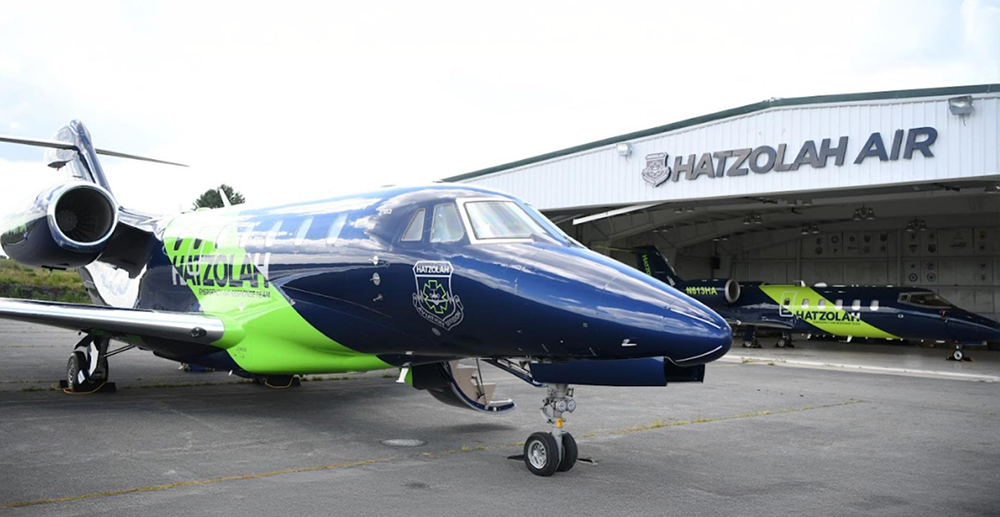
Throughout its relatively short existence, Hatzolah Air has undertaken numerous high-stakes missions. Rowe said that, “in 2022, the organization was instrumental in evacuating patients, refugees, and Holocaust survivors from Ukraine to Israel and other safe destinations amid the escalating crisis. Besides evacuations, Hatzolah Air played a crucial role in delivering thousands of pounds of critical supplies to aid local responders.” Reflecting on these efforts, Rowe described Hatzolah Air’s involvement as “crucial,” particularly during the chaotic and dangerous conditions in Ukraine.
The organization’s rapid response was similarly evident following the destruction caused by Hurricane Ian in Florida. Rowe said that “within hours of the storm’s devastation, Hatzolah Air had boots on the ground, coordinating aid and relief efforts amidst a landscape marked by extreme disarray.” This responsiveness underscores Hatzolah Air’s adaptability and readiness to act under unpredictable conditions.
Hatzolah Air’s impact was also notably felt during the COVID-19 pandemic. Rowe remembered that, “at a time when commercial airlines were grounded, we coordinated flights to and from Israel, providing transportation for stranded, sick patients and helped with the final wishes of those seeking burial in Israel.”
The pandemic response extended to New York City, where Hatzolah Air played a key role in constructing a large COVID-19 triage hospital. “This facility provided crucial care during a time when hospitals were overwhelmed, preventing countless patients from being left without medical support,” Rowe added.
Beyond the United States, Hatzolah Air has made significant strides in Israel, where it has developed a “growing fleet of aircraft” and has launched the country’s first Helicopter Emergency Medical Service (HEMS) in partnership with Magen David Adom, Israel’s national EMS organization. This initiative marks a milestone in Israel’s emergency medical capabilities, enabling rapid medical response in a country where air transport can be crucial for reaching remote or congested areas. Rowe described this development as one of Hatzolah Air’s proudest achievements, reflecting its commitment to both innovation and life-saving capabilities on an international scale.
Hatzolah Air’s commitment to life preservation continues to drive its future ambitions. With the planned global headquarters and expanded infrastructure, the organization is poised to further enhance its rapid-response capabilities. Each mission that Hatzolah Air undertakes—whether evacuating refugees from war zones, delivering aid after natural disasters, or innovating emergency medical transport in Israel—cements its role as a leading entity in air-based humanitarian response.
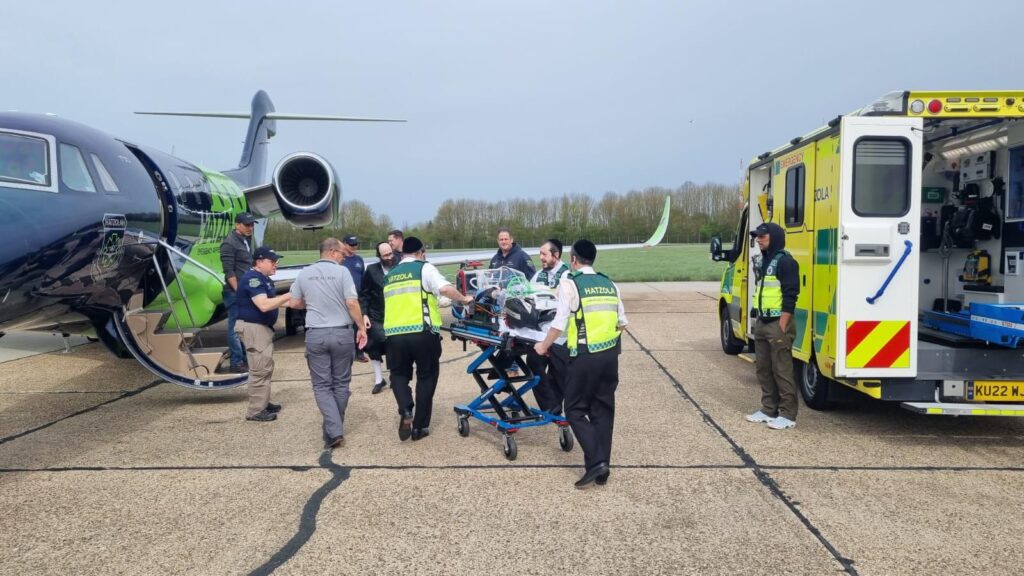
The success of Hatzolah Air is built upon a network of dedicated volunteers and supported by a foundation of community donations and philanthropists who share Rowe’s vision. Together, they enable Hatzolah Air to remain agile, responsive, and profoundly impactful across diverse scenarios, embodying a legacy that honors Hatzolah EMS’s roots while elevating its mission to a global scale.
Rowe told The Jewish Voice that since its founding, Hatzolah Air has become a global force in emergency medical air transport, undertaking life-saving missions to over 68 destinations worldwide. Driven by a commitment to provide assistance “wherever and whenever” it is needed, Hatzolah Air’s reach spans continents, ensuring that critically ill or injured individuals in far-reaching or medically underserved areas have access to advanced medical care.
Hatzolah Air’s operations cover a remarkably diverse list of destinations, including major cities in Austria, Argentina, Belgium, Canada, Costa Rica, Ecuador, England, France, Germany, Hungary, Hong Kong, Italy, Japan, Mexico, Panama, Portugal, Poland, Romania, Russia, Singapore, and Switzerland, among others. The organization’s willingness to respond across borders is a testament to its unwavering dedication to patient care, regardless of location or logistical complexity.
Each mission is carefully coordinated to ensure that patients receive appropriate care as swiftly as possible, often involving specially equipped planes and expert medical personnel, Rowe remarked. The complexity of these missions highlights Hatzolah Air’s capacity to mobilize highly trained doctors, paramedics, and medical staff at a moment’s notice to ensure optimal care for those in distress.

The life-saving impact of Hatzolah Air is perhaps best illustrated by the numerous cases in which timely intervention prevented tragic outcomes. Rowe said that in April of this year, a 72-year-old woman was in Ecuador when she developed severe swelling and stiffness in her hands and legs. Thrombi were discovered in her leg and lungs, a critical situation compounded by a lack of appropriate medical facilities locally equipped to address her needs. Hatzolah Air responded by dispatching a medical crew that transported her to a level 1 trauma center in Florida, where she received the specialized care necessary to stabilize her condition. Without Hatzolah Air’s intervention, the outcome could have been far more severe.
In April 2023, a 14-year-old boy suffered a stroke while on vacation in Panama. Hatzolah Air responded with the swift mobilization of pediatrician Dr. Gershon Fink and ALS paramedic Michael Strongin, who arrived within hours to accompany the patient on a flight back to the U.S., where he could access the intensive care needed to mitigate the long-term effects of his stroke. The rapid response and specialized care provided during transport likely altered the young patient’s future, illustrating the profound impact of Hatzolah Air’s services in time-sensitive medical crises.
Among the state-of-the-art aircraft that Hatzolah Air utilizes include the Citation X, the Learjet 60, the Sikorsky S-76 C++ Helicopter and the Gulfstream G550.
These cases highlight Hatzolah Air’s unique position as a nonprofit dedicated to emergency air transport in a field dominated by commercial operators. Unlike many air ambulance services, Hatzolah Air’s model prioritizes patient needs over profit, sustained largely by volunteer efforts and philanthropic support. This focus on altruistic service is a legacy of Hatzolah’s founding principles, bringing compassionate care to those who might otherwise lack access to life-saving intervention.
By providing expert medical transport across national and continental borders, Hatzolah Air has not only elevated the standards for emergency medical aviation but also reinforced the notion that humanity and care can transcend geographic boundaries. Rowe’s leadership has propelled the organization forward, establishing a powerful framework for international medical relief that is poised to evolve and expand in the years to come.




